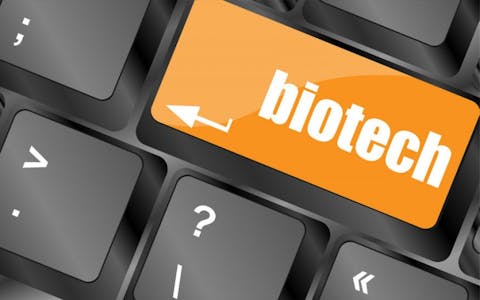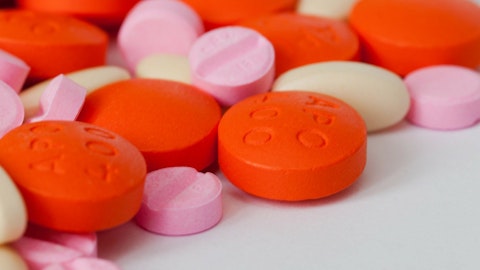2016 was not a very good year for biotech stocks to say the least. The iShares NASDAQ Biotechnology Index (ETF) (NASDAQ:IBB) lost over 20%, as broader market indexes hit new highs. Investors sold off biotech stocks over concerns of drug-pricing fueled by attacks during the Presidential campaign. Hillary Clinton blasted several companies that over-inflated the prices of their drugs and promised to go after the industry and its practices.
After the election, biotech stocks didn’t manage to recoup their losses, as Donald Trump also said that he would do something about the issue of drug pricing. Just a few days ago, Trump boasted about developing a system spurring competition in the drug industry, claiming that “pricing for the American people will come way down”. Well, after seeing Trump and Republicans’ plan to replace the Affordable Care Act, it will be interesting to see what they will do about drug pricing. Following Trump’s latest tweet, a number of pharma stocks took a hit. Nevertheless, since the beginning of the year, biotech stocks have been gaining ground, with IBB having gained nearly 13%.
Gilead Sciences, Inc. (NASDAQ:GILD) was no exception, as its stock plunged by some 27% last year. It is down by another 8% year-to-date, as the company reported a drop in sales and profits for the fourth quarter and issued soft guidance for 2017. Even though its non-GAAP EPS of $2.70 and revenue of $7.32 billion topped the estimates by $0.09 and $150 million, respectively, the figures represented drops of 19% and 14% respectively over the year.

Copyright: copacool / 123RF Stock Photo
For its fiscal 2017, the company expects revenue between $22.5 billion and $24.5 billion and Hep C drug sales of between $7.50 billion and $9.00 billion. The company’s hep C drugs also showed a drop in sales in the fourth quarter, as well as other products. However, the company’s HIV franchise has exhibited robust growth and many analysts and investors suggested betting on Gilead particularly for its HIV drugs rather than its hep C pipeline.
There are many reasons why Gilead Sciences, Inc. (NASDAQ:GILD)’s HIV drugs should be the key factor to invest in the stock. These drugs are effective, allowing people to manage their condition throughout their lifetime. At the same time, people with HIV have to take the drugs throughout their entire life, which represents an advantage in comparison with HCV drugs that have to be taken only during a course. Gilead dominates the market in the HIV space and sales of HIV drugs amassed over 40% of Gilead’s sales last year.
Follow Gilead Sciences Inc. (NASDAQ:GILD)
Follow Gilead Sciences Inc. (NASDAQ:GILD)
Receive real-time insider trading and news alerts
On the following page, we will discuss the hedge fund sentiment towards Gilead and see what some top investors think about the company.
Smart money investors have mixed feelings about Gilead Sciences, Inc. (NASDAQ:GILD). At Insider Monkey we analyze hundreds of 13F filings of different hedge funds and other institutional investors and determine their collective sentiment towards thousands of stocks. This, in turn, allows us to develop investment strategies that generate market-beating returns using only one metric to pick stocks. For example, our latest strategy identifies the 100 best-performing funds of the previous quarter from among the collection of 700+ successful funds that we track in our database, which we accomplish using our returns methodology. We then study the portfolios of those 100 funds using the latest 13F data to uncover the 30 most popular mid-cap stocks (market caps of between $1 billion and $10 billion) among them to hold until the next filing period. This strategy delivered 39.7% gains over the past 12 months and outperformed the 24.1% gain enjoyed by the S&P 500 ETFs. Our enhanced small-cap hedge fund strategy returned more than 45% over the last 12 months and outperformed SPY by more than 30 percentage points over the last 4.5 years (see more details).
In Gilead Sciences, Inc. (NASDAQ:GILD)’s case, there were 85 funds holding its shares at the end of 2016, down by two over the fourth quarter. The aggregate value of those funds’ holdings declined to $3.30 billion from $3.47 billion during the quarter and represented 3.50% of the company’s outstanding stock at the end of 2016. Even though the number of funds long the stock is significant, Gilead is far from being one of the most popular stocks. Nevertheless, among healthcare stocks, Gilead is the second most popular after Allergan plc (NYSE:AGN).
Among the largest shareholders of Gilead Sciences, Inc. (NASDAQ:GILD) are quant funds: Jim Simons’ Renaissance Technologies and D. E. Shaw. During the fourth quarter both funds boosted their stakes in the company: Renaissance by 171% to 5.27 million shares and D. E. Shaw by 280% to 4.63 million shares.
One of the most followed investors, Julian Robertson of Tiger Management, has been a long-term Gilead Sciences, Inc. (NASDAQ:GILD) bull, who has expressed his fondness of the company on several occasions. Last year, Robertson said that the company had to do more with its cash, particularly in the M&A space. However, Robertson also pointed out that he has “a little bit given up” on the company because it didn’t put all its cash to work. At the end of 2016, Tiger Management held 38,511 shares of Gilead Sciences, Inc. (NASDAQ:GILD) and the fund has been owning a stake since 2013.
Disclosure: None


